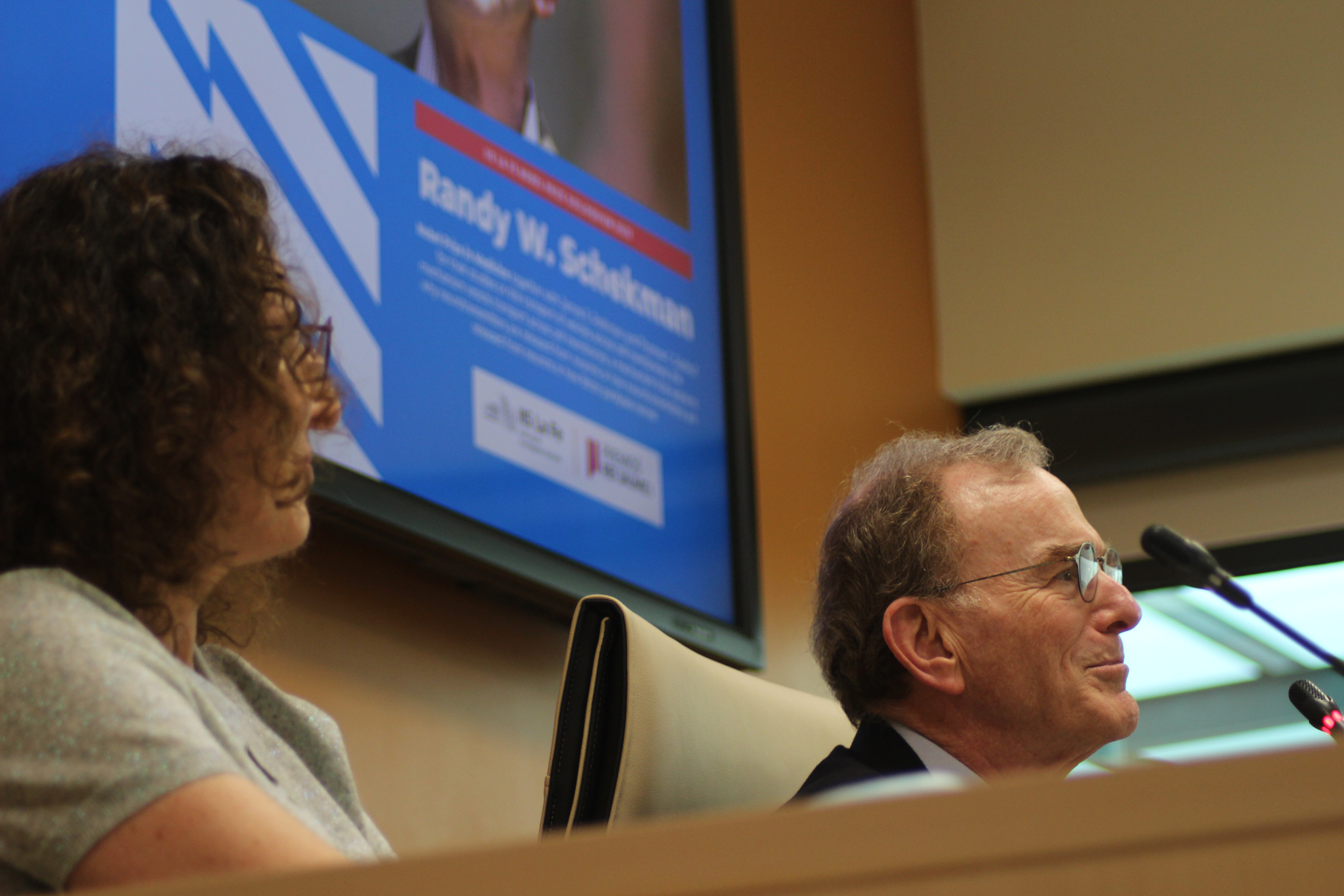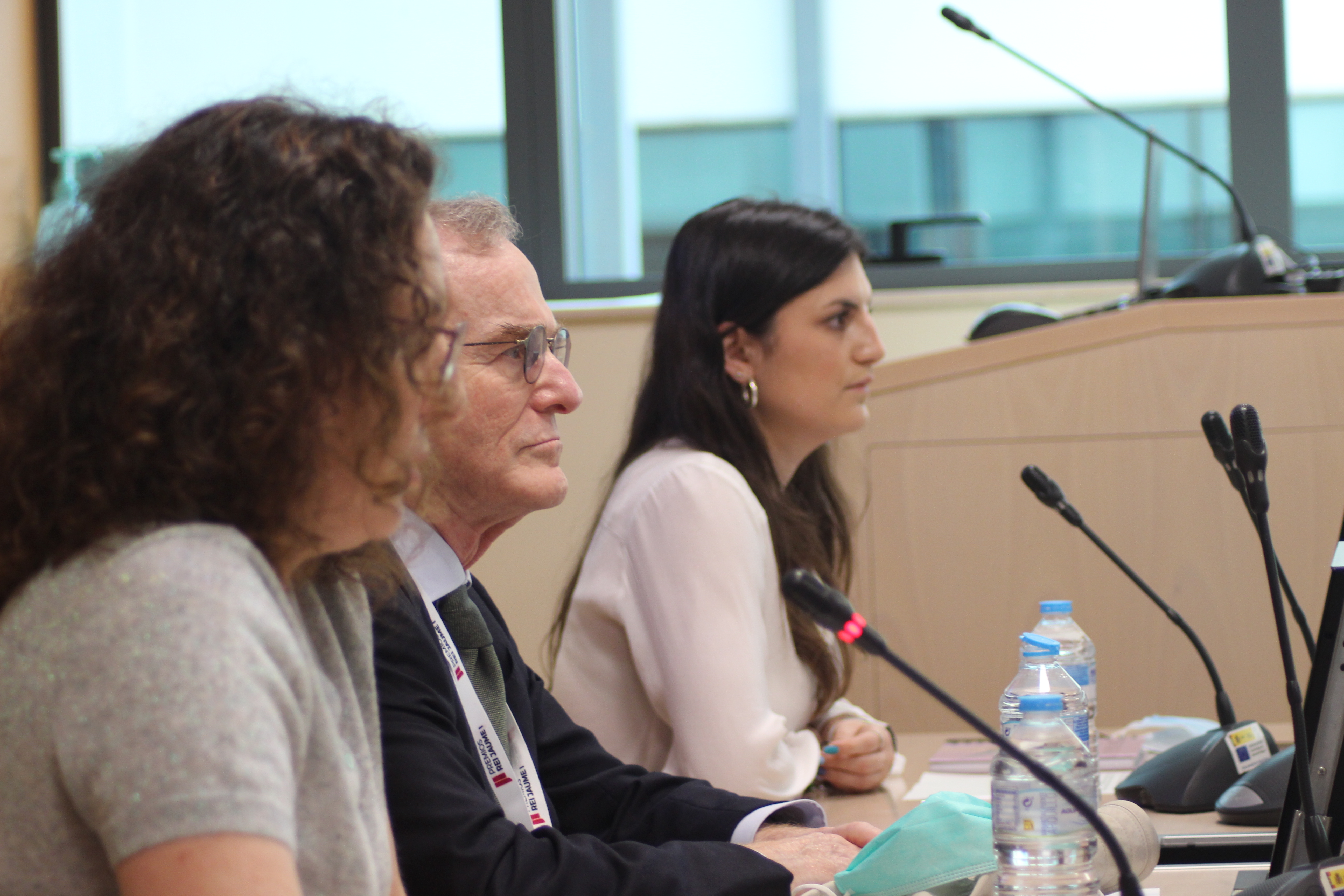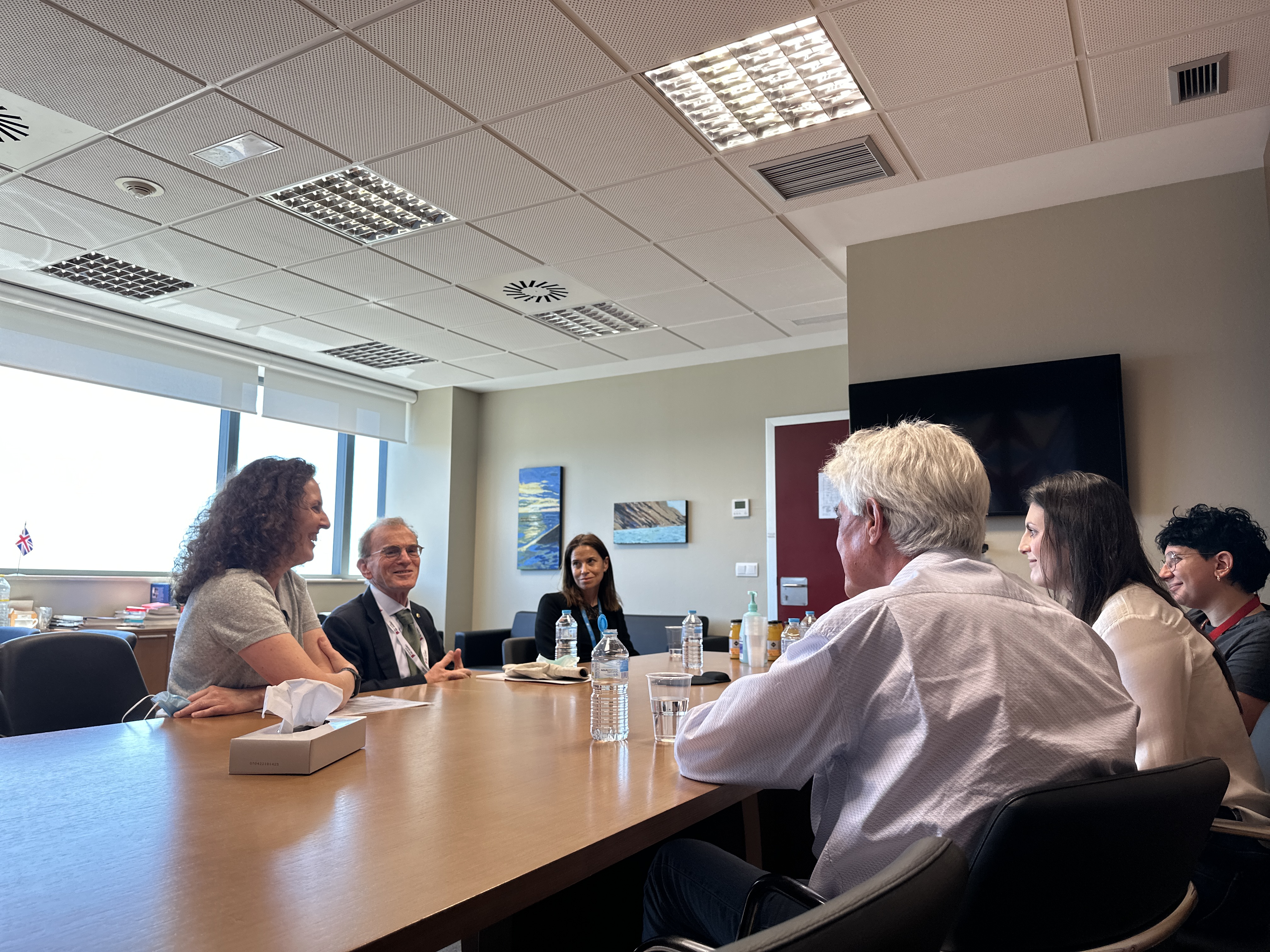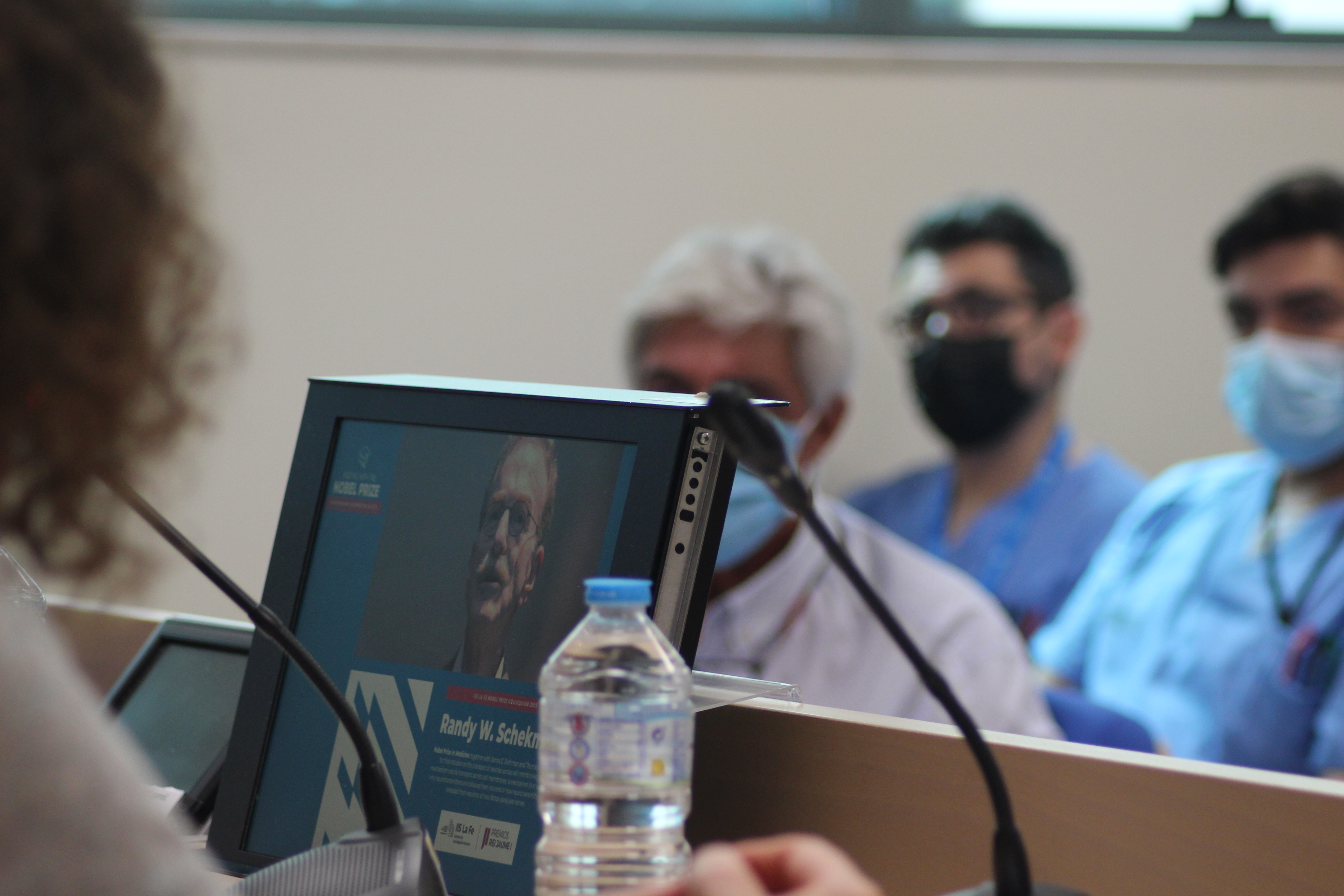News
The Nobel Prize in Medicine Randy W. Schekman visits La Fe Health Research Institute
The american cell biologist and research scientist answers questions from researchers at the institution
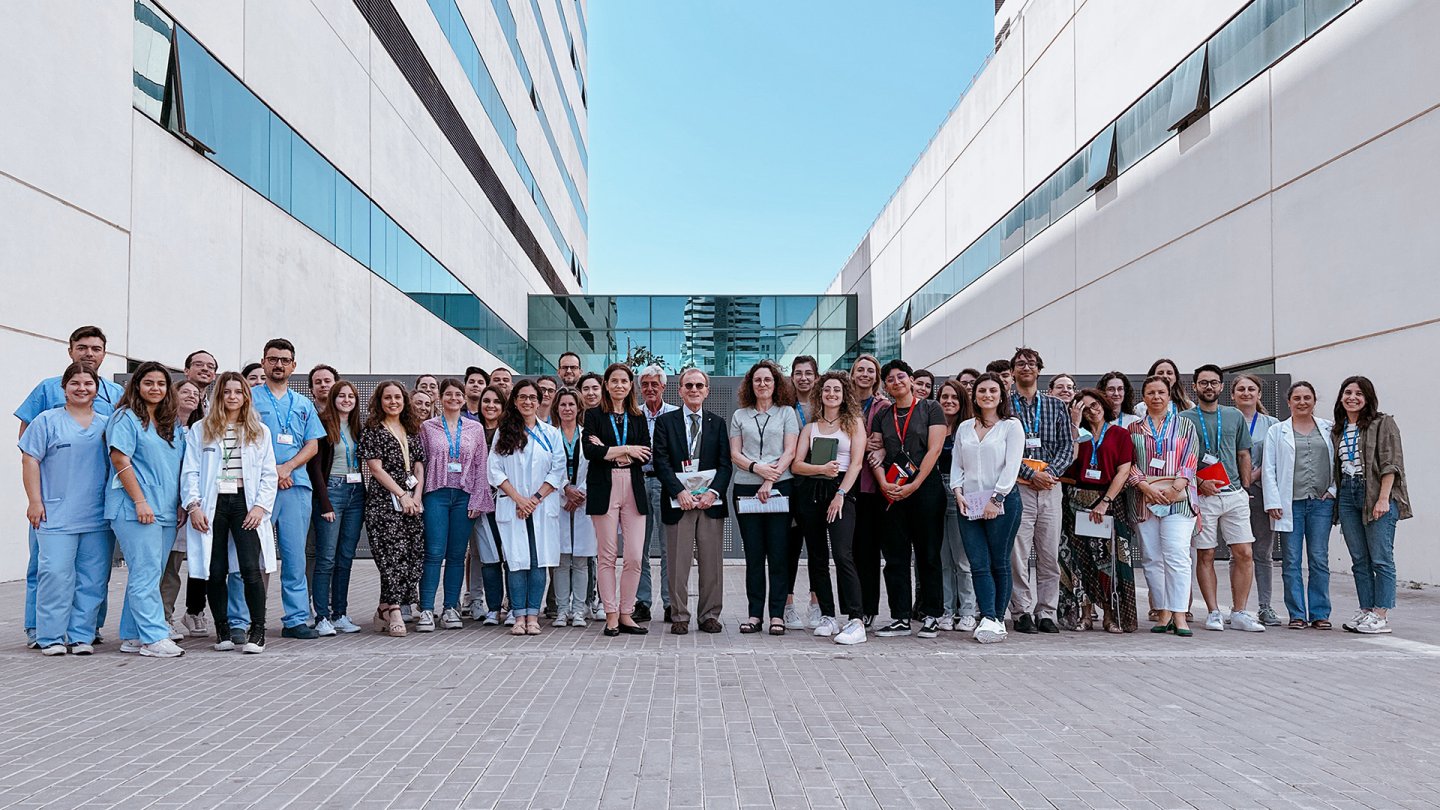
The cell biologist and scientific researcher, Randy W. Schekman, Nobel Prize in Medicine 2013, visited La He Health Research Institute (IIS La Fe), where he held a meeting with a group of researchers with whom he exchanged experiences. This meeting took place on the occasion of the celebration of the traditional jury meeting, which decides the six winners of the XXXV Edition of the Rei Jaume I Awards, the most important scientific awards in the country.
During his speech, the Nobel prize addressed different topics and issues that concern, above all, researchers who are in their predoctoral stage. The importance of publishing in journals with impact factor, what to do after the doctorate or the difficult approach to the research career in Spain have been some of the topics that the cell biologist has discussed with the attendees, in addition to talking about his career as a researcher.
At the colloquium, Schekman shared a table with Pilar Sepúlveda, PhD in biochemistry and head of the Joint Unit of Regeneration and Cardiac Transplantation, and Mireya Morote, a pre-doctoral student of the Hematology and Hemotherapy group.
Subsequently, a delegation formed by the scientific director, Guillermo Sanz, the managing director, Ainhoa Genovés, the researcher Pilar Sepúlveda and the predoctoral students Marilù Casini and Mireya Morote have accompanied Dr. Randy Schekman to a meeting in which they have exchanged impressions before heading to his next commitment as a jury of the Rei Jaume I Awards.
The trajectory of Dr. Schekman
Born in Saint Paul, Minnesota, United States, on December 30, 1948. He is an American cell biologist and scientific researcher. He is the son of German immigrants and spent his early years in the city of Saint Paul, where he worked in various trades to pay for his studies. He graduated in Biology from the Truckee campus of the University of California.
He later received his Ph.D. from Stanford University, where he also completed a postdoctoral thesis on DNA duplication and is currently a professor at UC Berkeley. He has been a life member of the U.S. National Academy of Sciences since 1992.
In 2013, he was awarded the Nobel Prize in Medicine together with James E. Rothman and Thomas C. Südhof for their studies on vesicle transport across cell membranes, a mechanism that explains why neurotransmitters are released from neurons or how Botox paralyzes nerves. He has strongly criticized the scientific bureaucracy and the weight of business and personal interests in the field of research, as well as the bias that exists when evaluating papers, where he alleges that publications in internationally renowned journals are the main requirement for promotion in the professional hierarchy, such as the journal Science, where he had published the article that earned him the Nobel Prize.


